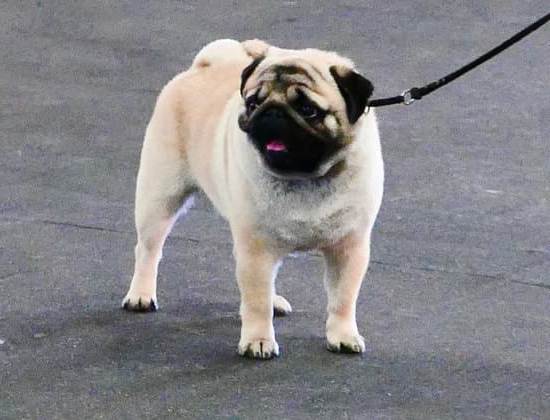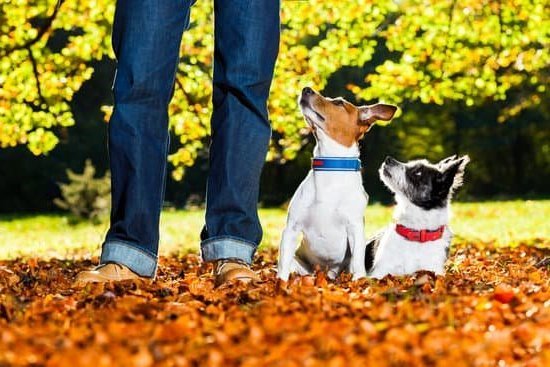Have you ever wondered, “Why does my dog whine with the train?” Dogs have a unique sensitivity to noise, which can greatly impact their behavior and emotions. Understanding why our canine companions react in certain ways is crucial for providing them with the support and care they need. This article delves into the intricate world of canine behavior and explores the connection between dogs and noise sensitivity.
Loud noises, such as those produced by passing trains, can trigger anxiety and stress in dogs. As highly auditory creatures, dogs are susceptible to feeling overwhelmed by sudden, loud sounds. This often leads to behaviors like whining, pacing, or even hiding. By recognizing the effects of noise on our furry friends, we can better understand their reactions and respond appropriately to help them feel safe and secure.
When it comes to understanding why dogs whine in response to noise, there are several common reasons to consider. Dogs may whine as a way to communicate their discomfort or seek reassurance from their owners.
In some cases, they may be expressing fear or anxiety due to the unexpected and jarring nature of loud sounds like trains passing by. By identifying these triggers, pet owners can take proactive steps to alleviate their dog’s distress and provide comfort during noisy situations.
The Connection Between Dogs and Noise Sensitivity
Dogs are known for their acute sense of hearing, which makes them more sensitive to noises compared to humans. This heightened sensitivity can lead to various behavioral responses, including whining when exposed to loud sounds like passing trains. Understanding the connection between dogs and noise sensitivity is crucial in helping pet owners address their furry companions’ reactions to auditory stimuli.
One of the reasons why dogs may whine in response to trains and other loud noises is due to their natural instincts and survival mechanisms. Dogs, being descendants of wolves, have a strong sense of alertness to potential threats in their environment. Loud noises like train whistles or rumbling tracks can trigger a dog’s fight-or-flight response, causing them to feel anxious or stressed. Whining may be their way of expressing discomfort and seeking reassurance from their owners.
Furthermore, the connection between dogs and noise sensitivity can also be influenced by past experiences or lack of socialization during their critical developmental period. Dogs that have not been exposed to loud sounds in a positive manner during puppyhood may develop fear or anxiety towards unfamiliar noises later in life. Understanding your dog’s unique history and triggers can help you better support them during stressful situations involving loud noises such as train passages.
The Effects of Loud Noises on Dogs’ Behavior and Emotions
Loud noises can have a significant impact on a dog’s behavior and emotions. Dogs, with their acute sense of hearing, are especially sensitive to loud sounds such as trains passing by. When exposed to these loud noises, dogs may experience stress, fear, and anxiety, leading them to exhibit various behaviors such as whining, barking, pacing, or hiding. This heightened sensitivity to noise is often rooted in evolutionary instincts that help dogs detect potential threats in their environment.
The effects of loud noises on dogs’ behavior can also manifest in physical symptoms such as trembling, panting, drooling, or even destructive behaviors like chewing or digging. These responses are the result of the dog’s natural fight-or-flight response to perceived threats.
For some dogs, the sound of a passing train can trigger a state of alertness and vigilance that may be difficult for them to regulate on their own. Understanding how noise impacts your dog’s behavior and emotions is crucial in addressing their distress and helping them cope with stressful situations.
It is essential for dog owners to recognize the signs of stress and anxiety in their pets when exposed to loud noises like trains. By paying attention to your dog’s body language and vocalizations, you can better understand how they are feeling and provide the necessary support and comfort they need during stressful moments.
In the next section, we will explore common reasons why dogs may whine in response to noise and offer practical tips for calming a whining dog during train passages.
Common Reasons Why Dogs Whine in Response to Noise
Dogs whining in response to noise, such as the sound of a passing train, can stem from various reasons. One common cause is noise sensitivity or phobia. Just like humans, dogs have different levels of tolerance for loud sounds. Some dogs may find the sound of trains or other loud noises overwhelming, triggering feelings of anxiety or fear that manifest as whining.
Another reason why dogs may start whining with the train is due to their acute hearing abilities. Dogs have a much more heightened sense of hearing compared to humans, allowing them to perceive sounds that are imperceptible to us. The loud, rumbling noise produced by a passing train can be particularly distressing for some dogs, prompting them to vocalize their discomfort through whining.
Furthermore, past negative experiences could also play a role in a dog’s whining behavior when exposed to loud noises like trains. If a dog had a traumatic encounter with a loud sound in the past, they may develop an association between that noise and feeling threatened or scared. This conditioned response can lead to whining whenever similar noises, such as train passing by, are heard.
| Reasons Behind Dog’s Whining | Details |
|---|---|
| Noise Sensitivity | Dogs may find loud noises overwhelming, causing anxiety and fear. |
| Acute Hearing Abilities | Dogs’ heightened sense of hearing makes them more sensitive to loud sounds like passing trains. |
| Past Negative Experiences | Dogs that had traumatic encounters with loud noises may associate those sounds with fear and anxiety, leading to whining behaviors. |
Behavioral Triggers
When it comes to understanding why dogs whine in response to loud noises, such as trains passing by, it is important to consider the behavioral triggers that may be at play. Dogs have incredibly sensitive hearing, and sounds that are loud or sudden can cause them distress and anxiety. This heightened sensitivity is a natural instinct that has been developed over time in dogs as a way to detect potential threats in their environment.
Startling Noise
One of the main reasons why dogs may whine when they hear a train approaching is due to the startling nature of the noise. Trains produce loud, low-frequency sounds that can be especially jarring for dogs with sensitive hearing. The suddenness of the noise, combined with its volume, can trigger a fear response in many dogs, leading them to whine or exhibit other signs of distress.
Association With Negative Experiences
In some cases, dogs may whine in response to train noises because they have had negative experiences associated with similar sounds in the past. For example, if a dog was previously exposed to a loud train noise during a stressful situation, such as being separated from their owner or during a thunderstorm, they may develop an association between trains and negative emotions.
This conditioning can result in the dog whining whenever they hear a train approaching as a way to express their fear or discomfort.
Social Facilitation
Another reason why dogs may whine when they hear trains or other loud sounds is due to social facilitation. Dogs are highly social animals and often look to their owners for cues on how to react to different situations.
If an owner displays signs of anxiety or distress when a train passes by, their dog may pick up on these emotions and mirror them through whining. This social aspect of behavior can reinforce the dog’s own feelings of fear or unease in response to loud noises like trains passing by.
Tips for Calming a Whining Dog During Train Passages
As a pet owner, witnessing your dog whine in response to loud noises like passing trains can be distressing. Understanding how to calm your furry friend during these stressful moments is essential for both their well-being and your own peace of mind. Here are some effective tips for helping your dog stay calm during train passages:
- Create a Safe Space: Designate a quiet, secure area in your home where your dog can retreat to when they hear loud noises. Fill this space with comforting items like their favorite toys, blankets, and treats to help them feel relaxed.
- Use Calming Remedies: Consider using calming aids such as pheromone diffusers or calming treats to help reduce your dog’s anxiety during train passes. These products can have a soothing effect on dogs and help alleviate their stress.
- Distract with Positive Reinforcement: Engage your dog in fun activities or training exercises that they enjoy when a train is passing by. This can redirect their focus from the noise outside and reinforce positive behavior.
Remember that every dog is unique, so it may take some trial and error to find the best calming techniques that work for your furry companion. With patience and consistency, you can help ease their anxiety and make train passages a less stressful experience for both of you.
Train Desensitization Techniques for Dogs
Gradual Exposure to Train Noises
One effective approach to desensitizing a dog to the sound of trains is through gradual exposure. Start by playing recordings of train noises at a low volume while engaging in activities that your dog enjoys, such as playing or getting treats. Over time, gradually increase the volume of the train sounds while continuing to engage with your dog positively. This gradual exposure can help your dog become accustomed to the noise without triggering anxiety or whining.
Positive Reinforcement Training
Using positive reinforcement techniques can also be helpful in desensitizing your dog to train noises. Whenever your dog remains calm and relaxed in the presence of train sounds, be sure to reward them with treats, praise, or favorite toys. This positive association helps shift their focus from fear or anxiety towards a more positive reaction. Consistent reinforcement can reinforce the idea that loud noises, such as those from passing trains, are nothing to be afraid of.
Creating a Safe Space
In some cases, creating a safe space for your dog during train passages can help alleviate their whining and anxiety. Designate a quiet area in your home where your dog feels secure and comfortable. This could be a cozy corner with their favorite bed and toys.
When you know that a train will be passing by, guide your dog to this safe space and provide comforting items like blankets or clothing with your scent. Creating a calming environment can help reduce stress and anxiety during noisy events like train passages.
By employing these desensitization techniques and providing ongoing support, you can help your furry friend overcome their fear of trains and reduce whining behavior associated with loud noises. Remember that patience, consistency, and understanding are key when helping your dog feel more at ease with their surroundings. With time and effort, you can build a stronger bond with your canine companion based on trust and support.
Seeking Professional Help
When your dog is exhibiting excessive whining behavior in response to loud noises like trains, it may be a sign of underlying issues that require professional intervention. Consulting a veterinarian or a certified dog behaviorist can provide valuable insights and strategies to help address your furry friend’s distress. Here are some reasons why seeking professional help is crucial in this situation:
- Medical Evaluation: A veterinarian can rule out any medical conditions that may be contributing to your dog’s sensitivity to noise. Pain, hearing loss, or other health issues could be causing discomfort and anxiety, leading to increased whining behavior.
- Behavioral Assessment: A dog behaviorist can conduct a thorough assessment of your pet’s behaviors and responses to stimuli, including loud noises like trains. They can help identify the root causes of your dog’s whining and develop a tailored behavior modification plan to address these triggers.
- Specialized Training Techniques: Professionals specializing in canine behavior can offer specialized training techniques and tools to help desensitize your dog to train noises and other loud sounds. These experts can provide guidance on gradual exposure methods, positive reinforcement training, and calming exercises to help alleviate your pet’s anxiety.
Seeking professional help is essential not only for addressing your dog’s immediate distress but also for long-term behavioral management. With the expertise and guidance of veterinarians and dog behaviorists, you can create a personalized treatment plan that focuses on reducing your pet’s sensitivity to noise triggers such as trains. By taking proactive steps to seek professional assistance, you can improve your dog’s quality of life and strengthen the bond between you and your canine companion.
Conclusion
In conclusion, understanding why dogs whine in response to loud noises like trains is essential for building a stronger bond with our canine companions. Dogs have an acute sense of hearing, making them more susceptible to being bothered by loud sounds. This sensitivity can lead to discomfort, anxiety, and fear in dogs, resulting in behaviors such as whining.
By recognizing the common reasons behind why dogs may whine with the train, such as noise sensitivity, fear of the unknown, or past negative associations, pet owners can take proactive steps to help their furry friends feel more at ease during loud noises.
Implementing strategies like creating a safe space for your dog during train passages, using calming techniques like music or white noise, and gradually desensitizing them to train sounds can all play a significant role in reducing their distress.
Ultimately, seeking professional help from a veterinarian or dog behaviorist may be necessary if your dog’s whining persists despite your efforts. These experts can provide specialized guidance and support tailored to your dog’s specific needs. By showing understanding and providing compassionate support during stressful situations like encountering trains, pet owners can strengthen their bond with their canine companions and ensure they feel safe and loved.
Frequently Asked Questions
Why Do Dogs Cry When Trains Run?
Dogs may cry when trains run due to the loud noises and vibrations that can startle or scare them. The sound of trains passing by may be overwhelming for some dogs, leading them to exhibit signs of distress or anxiety.
How Do I Train My Dog Not to Whine in the Car?
Training a dog not to whine in the car involves desensitizing them gradually to the experience of being in a vehicle. Start by taking short trips with positive reinforcement for calm behavior. Over time, increase the duration of car rides while rewarding your dog for staying quiet.
Is It Best to Ignore a Whining Dog?
Whether it is best to ignore a whining dog depends on the situation. If you have already ruled out any physical discomfort or need that your dog might have, ignoring the whining can help prevent reinforcing this behavior as a way for them to get attention.
However, always ensure your dog’s needs are met before deciding to ignore their whining.

Welcome to the blog! I am a professional dog trainer and have been working with dogs for many years. In this blog, I will be discussing various topics related to dog training, including tips, tricks, and advice. I hope you find this information helpful and informative. Thanks for reading!





